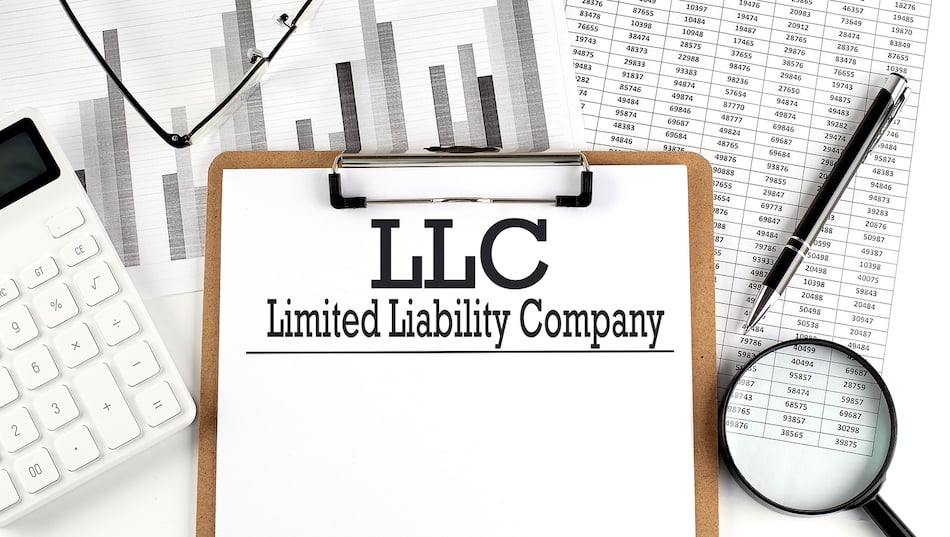Investing in real estate is a business, so it’s perfectly natural to want to own rental property using an entity like a limited liability company (LLC). However, when it comes to buying property through an LLC and obtaining financing, it might feel like you’ve run into a brick wall.
While it may take some time and effort, buying rental property through an LLC is possible. Let’s discuss financing options to consider, along with benefits and disadvantages of owning real estate in an LLC.
Key takeaways
- An LLC is a legal entity that many investors form to buy rental property.
- Advantages of owning property in an LLC include reduced personal liability in the event of a lawsuit or creditor claim and the ability to invite members to join the LLC.
- Lenders may balk at providing financing to an LLC for the same reasons an investor forms an LLC.
- By thinking outside of the box, it’s possible to buy property through an LLC with financing terms and conditions that meets the needs of both the borrower and lender.
Options for buying property through an LLC
Here are 5 options to consider when buying property through an LLC. Keep in mind that a lender may require a personal guarantee from each member of the LLC in most cases. So, even though a property is owned and financed by the LLC, members may be personally liable if the loan defaults.
Conventional loans
Traditional mortgage lenders, such as banks or credit unions, may be willing to work with you to finance a rental property under an LLC, especially if you already have a business relationship.
The lender will ensure the property generates sufficient income to pay operating expenses and service the mortgage payment by calculating the debt service coverage ratio (DSCR).
As a rule of thumb, a lender will require a DSCR of at least 1.25, which is determined by dividing net operating income (NOI) by the annual debt payment or service. For example, if a rental property has an NOI of $5,000 per year and the annual debt service is $3,700, the DSCR is 1.35.
Lenders will also typically run your credit report, verify your personal income and debts, and ask for a personal guarantee if the property is foreclosed on and the property value is insufficient to pay for the outstanding mortgage debt.
When looking for rental property financing, one option is Roofstock's third-party lending partners. You can calculate your rental property mortgage rates and get preapproved online before making an offer.
Portfolio loans
Another option for buying a property through an LLC is obtaining financing through a local bank or portfolio lender. While many mortgages are packaged and resold on the secondary market, some lenders will keep loans on their balance sheet or portfolio.
Doing so allows a lender to be more creative with loan terms and conditions, such as focusing more on the income the rental property is producing (or will be making) than a borrower's personal credit. A portfolio lender may also be able to fund a loan faster, providing a needed edge when buying rental property in a seller's market.
The tradeoff for this flexibility is that down payments and interest rates may be higher, and loan terms may be shorter. However, once a good working relationship is established, a portfolio lender may be more willing to work with you on future financing and even consider taking part in the deal by becoming a member of your LLC.
Private lenders
Private lenders are real estate investors and business people who invest in debt rather than equity.
For example, instead of using $100,000 as capital to purchase a rental property, a private lender will offer the funds as a mortgage loan in exchange for a regular monthly payment of principal and interest, the same way that a bank would.
Because private lenders invest for themselves and their business partners, they have the flexibility of offering financing with tailored terms and conditions to meet your needs and theirs.
Partner with other investors
One of the many benefits of forming an LLC is partnering with other investors.
Instead of arranging the financing through a traditional lender, members of an LLC can pool their funds together to purchase a rental property outright, then arrange outside funding later once the tenant is seasoned and cash flow is solid and consistent.
Depending on how the LLC operating agreement is structured, a member could also make a loan to the LLC and receive monthly payments of principal and interest (P&I), rather than sharing in the recurring rental income and any profits when the rental property is sold.
Mortgage broker
A mortgage broker is a one-stop shop for finding financing when buying a rental property through an LLC. Unlike a regular lender, a mortgage broker doesn't originate loans. Instead, a mortgage broker acts as an intermediary to help real estate investors find sources for financing.
An active mortgage broker will have access to various funding options that are the best match for your specific deal, including conventional lenders, private and hard money lenders, and even LLCs looking for additional members. In exchange for making a referral and handling the paperwork, a mortgage broker earns a commission when the transaction closes.
Pros and cons of using an LLC for rental property
While it's definitely possible to buy a rental property through an LLC, there are pros and cons to doing so. Here are some things to consider before setting up an LLC for real estate.
Pros of using an LLC for rental property
- An LLC helps to limit the personal liability of a rental property owner in the event of a lawsuit or creditor claim, as it’s a business entity offering asset protection. However, as the legal resource website Nolo.com notes, there may be instances where a court will “pierce the corporate veil” and hold an investor personally liable, such as when a company’s actions are wrongful or fraudulent.
- Income or losses are passed through the LLC and added to the income reported on your tax return. In most cases, the Internal Revenue Service (IRS) considers income from rental property to be "passive” income, which means it is not subject to payroll tax withholding such as Social Security, Medicare, and federal and state unemployment tax.
- Using an LLC for rental property ownership also makes it easier to separate personal assets from business assets to avoid commingling funds. For example, creating an individual bank account for each LLC and rental property with Stessa Cash Management makes it easier to record income and expenses to the correct tenant and property.
- An LLC can also be a good structure for partnering with other investors. Individual partners are "members" of the LLC and can contribute capital or expertise to the venture and share in income or losses as outlined in the operating agreement. Investing in an LLC can be an excellent way to grow and diversify a real estate portfolio by spreading capital across various investment opportunities.
- Property purchased through an LLC may also offer more privacy because the name of the LLC is on the property deed rather than your own name. Tenants, vendors, or the general public will not have easy access to your personal information because they will be doing business with the LLC.
Cons of using an LLC
- There are initial fees and ongoing costs when using an LLC to buy real estate, which differ from state to state. For example, the entity must be created, articles of incorporation must be done, and an operating agreement must be filed. A registered agent may also need to be appointed if an investor lives in a different state than the rental property.
- Buying property through an LLC also creates additional responsibilities in managing a company, such as holding annual shareholder meetings and ongoing compliance with federal and state regulations.
- Transferring an existing rental property into an LLC may trigger the "due on sale" clause in a current mortgage agreement because the owner's name changed, even if you are the sole member of the LLC. Although a lender may be unwilling to modify the loan agreement to allow an LLC transfer, an investor-friendly lender can suggest the best way to transfer the investment property without having to refinance the existing mortgage.
Closing thoughts
Obtaining financing for a rental property owned by an LLC requires some extra effort. However, buying property through an LLC can help to reduce personal liability, protect other business and personal assets, and allow you to partner with other real estate investors as members. To find a lender willing to make a loan to an LLC, cast your net far and wide by speaking with conventional lenders, private and portfolio lenders, and a local mortgage broker active with residential real estate investors.










